Oral Health Tips During Pregnancy for a Healthy Smile
Tips for Maintaining Oral Health During Pregnancy
Pregnancy is a time of wonderful change but also comes with special health considerations — including your oral health. Hormonal shifts during pregnancy can cause gums to become more sensitive, increasing the risk of dental problems and gum disease, which can lead to more bleeding and inflamation around the gums.
Taking care of your teeth and gums during pregnancy is vital not only for your own wellbeing but also for your baby’s health. Poor oral health during pregnancy has been linked to risks such as premature birth and low birth weight. By looking after the mother’s oral health, we also increase the chances of the baby having good oral health too.
At Starbright Dental, we want to help expectant mothers understand how to protect their smiles safely and effectively throughout pregnancy. This blog outlines common oral health challenges during pregnancy and practical tips to maintain a healthy mouth.
Why Oral Health Matters During Pregnancy
Pregnancy hormones, especially progesterone and oestrogen, increase blood flow to the gums, making them more prone to inflammation and bleeding — a condition known as pregnancy gingivitis. Research shows that up to 75% of pregnant women experience this if oral hygiene is inadequate.
If left untreated, gum inflammation may progress to periodontal disease, which has been associated with adverse pregnancy outcomes such as premature birth and low birth weight. The South Australian Dental Service highlights the importance of maintaining good oral health to minimise such risks.
Common Oral Health Issues During Pregnancy
Pregnancy Gingivitis
Hormonal changes make gums more reactive to plaque, causing redness, swelling, and bleeding.
Increased Plaque Formation
The immune response shifts during pregnancy, allowing more plaque accumulation and raising the risk of cavities and gum disease.
Morning Sickness Effects
Frequent vomiting exposes teeth to stomach acid, which erodes enamel and causes sensitivity.
Cravings and Snacking
Increased consumption of sugary or acidic foods can increase the likelihood of tooth decay.
Practical Tips for Maintaining Oral Health During Pregnancy
Brush Twice Daily with a Soft Toothbrush
Use fluoride toothpaste and a soft brush to gently clean teeth and avoid aggravating sensitive gums.
Floss Daily
Removing plaque between teeth prevents gum inflammation.
Rinse After Vomiting
If you experience morning sickness, avoid brushing immediately after vomiting. Instead, rinse your mouth with water or a fluoride mouthwash to neutralise acid and protect enamel.
Maintain a Balanced Diet
Eat foods rich in calcium, vitamin D, and folate to support oral and overall health. Limit sugary snacks and drinks.
Stay Hydrated
Drink plenty of water to prevent dry mouth and help rinse away food particles.
Regular Dental Visits Are Safe and Recommended
Routine dental care during pregnancy is safe, especially in the second trimester. The Queensland Government encourages expectant mothers to continue regular dental check-ups to monitor and maintain oral health.
What to Expect During a Pregnancy Dental Visit
Your dentist will:
- Check for signs of gum disease or infection
- Assess teeth for decay or enamel wear
- Perform professional cleaning to remove plaque and tartar
- Advise on any dental treatment that may be needed and its safety during pregnancy
Most routine dental procedures are safe, and urgent treatments are carried out when necessary.
When to Contact Your Dentist
Contact your dentist promptly if you experience:
- Persistent gum bleeding or swelling
- Dental pain or discomfort
- Loose teeth or sores that won’t heal
Early dental care is essential for preventing complications.
Conclusion
Pregnancy is a unique time to care for both your body and your smile. By following simple oral health routines and visiting your dentist regularly, you can ensure a healthy pregnancy and a confident smile.
Starbright Dental offers gentle, personalised care for pregnant women. Book your appointment today to keep your oral health on track.

